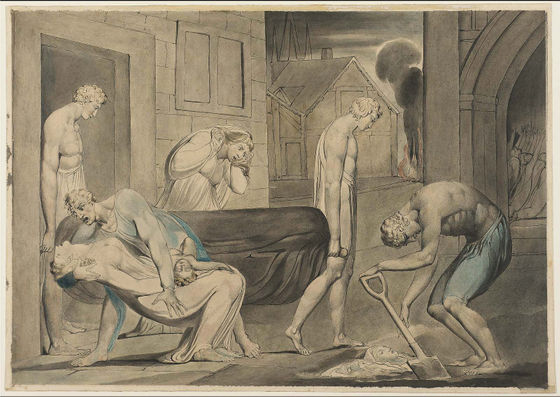Historians point out that the 'first pandemic' that occurred in ancient times was larger than previously known.

The pandemic of the new coronavirus infection, which will continue from 2020, has been called the 'once in 100 years pandemic' since the
New Approaches to the'Plague of Justinian' * | Past & Present | Oxford Academic
https://academic.oup.com/past/advance-article/doi/10.1093/pastj/gtab024/6427314
Justinianic Plague was nothing like flu and may have hit England before Constantinople | University of Cambridge
https://www.cam.ac.uk/research/news/justinianic-plague-was-nothing-like-flu-and-may-have-hit-england-before-constantinople
We May Have Underestimated The First Known Outbreak of Bubonic Plague
https://www.sciencealert.com/we-may-have-underestimated-the-first-known-outbreak-of-bubonic-plague
Plague of the scale of Justinian is divided opinion even among researchers, and 'was at best was only the effect of the order of influenza in modern society' Some of the research on the impact theory that that there also. Among historians, the idea of denying the influence of plague and other plague on the development of human society is called 'plague skepticism,' and it is said that it has received a great deal of attention in recent years.

by
Therefore, Peter Sallis, a historian at the University of Cambridge, conducted a study to scrutinize papers assessing the effects of plague from analysis of old literature and DNA analysis from burial sites. As a result, it was found that the damage caused by Justinian's plague was likely to have been underestimated.
Some studies from the standpoint of plague skepticism have argued that 'there are few records or ancient documents that mention plague,' but Salis denies this. For example, Justinian I, who ruled the Byzantine Empire from 527 to 565, described the 542 law enacted for the purpose of rebuilding the empire's economy as 'a law enacted surrounded by the existence of death that spread to all regions.' It was written that. At the same time, legislation believed to be due to plague, such as a law to prevent the exploitation of labor due to a serious labor shortage and a law to reduce the burden on landowners facing depopulation due to population decline. Many were enacted.
Furthermore, in the Byzantine Empire under the plague epidemic, lightweight gold coins whose value was devalued for the first time in centuries were issued one after another, attracting attention as an urgent financial measure at that time, and copper coins distributed in Constantinople. The weight of the coin has also been reduced.
Regarding these historical sources, Salis said, 'The 6th-century historian Procopius , who witnessed the plague first hand, noted that the plague arrived in Constantinople, apart from the vast military history records. This is more important than the amount of plague description left by Procopius, suggesting that the influence of the pandemic was so great that those who wrote about military and history were forced to deal with different themes. 'Because of this,' he denied the opinion that the treatment of plague in the literature at that time was small.

A 2018 study that analyzed DNA from the remains of burial sites showed that the plague that was endemic in the Byzantine Empire had spread to the United Kingdom, Salis said. At that time, many of the remains of a burial site called Edix Hill in Cambridgeshire, the country, were due to illness, and the DNA of the found Yersinia pestis was close to that of Justinian's early plague outbreak. The plague is believed to have caused great damage over a wide area.
'More genetic evidence will reveal facts that we haven't expected yet. Historians aren't just shrugging, they're imaginative and proactive. Must be addressed. '
Related Posts:
in Science, Posted by log1l_ks







